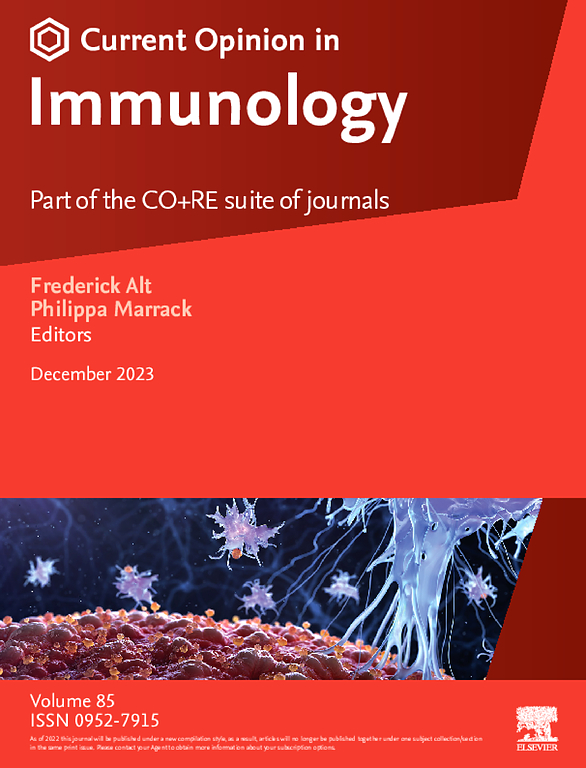B cells spatial organization defines their phenotype and function in cancer “Tell me with whom you consort, and I will tell you who you are” ― Goethe
IF 6.6
2区 医学
Q1 IMMUNOLOGY
引用次数: 0
Abstract
The presence of B cells and their subtypes in the tumor environment has been recognized a for very long time. Immunoglobulins specific for more than thousands of tumor-associated antigens were detected in the sera of patients with cancer; however, antibody-mediated cancer cell killing is usually impaired. The role of humoral immune response remained elusive until recently, with new discoveries regarding their contribution in regulating antitumor immunity, particularly during immunotherapy. Humoral immunity has been described to promote or attenuate tumorigenesis and can have opposing effects on therapeutic outcome in different tumor entities. The antagonism effect of B cells depends on their subtypes and immunoglobulin isotypes and is regulated by their spatial distribution and localization. In this short review, we will focus on how the spatial organization of B cells within the tumor microenvironment, tumor-associated lymph nodes, and tertiary lymphoid structures define their fate and function and contribute to the regulation of antitumor immunity.
B 细胞的空间组织决定了它们在癌症中的表型和功能 "告诉我你与谁为伍,我就告诉你你是谁"--歌德。
人们认识到肿瘤环境中存在 B 细胞及其亚型已有很长时间。在癌症患者的血清中检测到了针对数千种肿瘤相关抗原的特异性免疫球蛋白;然而,抗体介导的癌细胞杀伤通常会受到损害。直到最近,人们才发现体液免疫反应在调节抗肿瘤免疫中的作用,尤其是在免疫治疗期间。据描述,体液免疫可促进或减弱肿瘤发生,并对不同肿瘤实体的治疗效果产生相反的影响。B 细胞的拮抗作用取决于其亚型和免疫球蛋白异型,并受其空间分布和定位的调节。在这篇简短的综述中,我们将重点讨论 B 细胞在肿瘤微环境、肿瘤相关淋巴结和三级淋巴结构中的空间组织如何决定其命运和功能,以及如何促进抗肿瘤免疫的调节。
本文章由计算机程序翻译,如有差异,请以英文原文为准。
求助全文
约1分钟内获得全文
求助全文
来源期刊
CiteScore
13.30
自引率
1.40%
发文量
94
审稿时长
67 days
期刊介绍:
Current Opinion in Immunology aims to stimulate scientifically grounded, interdisciplinary, multi-scale debate and exchange of ideas. It contains polished, concise and timely reviews and opinions, with particular emphasis on those articles published in the past two years. In addition to describing recent trends, the authors are encouraged to give their subjective opinion of the topics discussed.
In Current Opinion in Immunology we help the reader by providing in a systematic manner: 1. The views of experts on current advances in their field in a clear and readable form. 2. Evaluations of the most interesting papers, annotated by experts, from the great wealth of original publications.
Current Opinion in Immunology will serve as an invaluable source of information for researchers, lecturers, teachers, professionals, policy makers and students.
Current Opinion in Immunology builds on Elsevier''s reputation for excellence in scientific publishing and long-standing commitment to communicating reproducible biomedical research targeted at improving human health. It is a companion to the new Gold Open Access journal Current Research in Immunology and is part of the Current Opinion and Research(CO+RE) suite of journals. All CO+RE journals leverage the Current Opinion legacy-of editorial excellence, high-impact, and global reach-to ensure they are a widely read resource that is integral to scientists'' workflow.

 求助内容:
求助内容: 应助结果提醒方式:
应助结果提醒方式:


